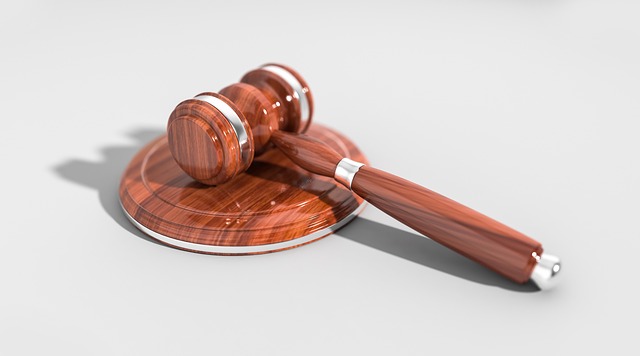Corporate crime investigations navigate complex landscapes with distinct administrative and civil proceedings. Regulatory bodies use administrative actions for enforcement, focusing on penalties and corrective measures to deter future misconduct. Civil litigation, driven by outcomes of investigations, seeks remedies for victims, offering broader options like monetary damages and injunctions. Understanding these differences is crucial for strategic directions, evidence collection, and achieving justice while mitigating reputational damage.
Corporate Crime Investigations delve into complex legal landscapes where organizations face scrutiny for illegal activities. This article explores the multifaceted approach to understanding and addressing corporate misconduct. We dissect key components, including the differences between administrative and civil proceedings, their unique roles in holding corporations accountable, and the strategic considerations guiding investigations. By examining these aspects, we provide insights into the intricate dance between regulatory bodies, victims, and legal systems seeking justice and prevention.
- Understanding Corporate Crime: Definition and Scope
- Administrative Proceeds: Roles, Timing, and Focus
- Civil Proceedings: Victim-Centric, Damages, and Remedies
- Key Differences: Jurisdiction, Evidence, and Punishment
- Investigating Strategies: Tactics, Tools, and Ethical Considerations
Understanding Corporate Crime: Definition and Scope

Corporate crime, a pervasive issue, encompasses a wide range of illicit activities engaged in by businesses or their representatives. It goes beyond traditional criminal offenses and includes various forms such as fraud, corruption, environmental violations, and human rights abuses. Understanding corporate crime requires recognizing its multifaceted nature, which can differ significantly from individual crimes. Unlike typical criminal cases, corporate offenses often involve complex structures, multiple jurisdictions, and a blend of administrative, civil, and even criminal proceedings.
The differences between administrative and civil proceedings are crucial in the context of corporate crime investigations. Administrative actions, typically taken by regulatory bodies, focus on enforcing laws and regulations, while civil litigation aims to provide remedies and compensate victims. In all stages of the investigative and enforcement process, these distinctions play a pivotal role in determining strategies, legal frameworks, and potential outcomes. Moreover, the involvement of philanthropic and political communities can significantly influence how corporate crime is addressed, shaping the direction and impact of investigations aimed at achieving extraordinary results.
Administrative Proceeds: Roles, Timing, and Focus

In corporate crime investigations, Administrative Proceeds play a pivotal role in holding organizations accountable for their actions. These proceedings, distinct from Civil Proceedings, focus on enforcing regulatory compliance and deterring future misconduct. Unlike civil lawsuits that seek monetary damages, administrative actions are typically led by government agencies and aim to impose penalties, order corrective measures, or revoke licenses, thereby ensuring corporate responsibility. The timing of these processes is crucial; they often commence promptly upon detection of wrongdoing, allowing for swift justice and the potential for organizations to rectify their practices.
The unique focus of administrative proceedings lies in their ability to target systemic issues within companies. By scrutinizing internal controls, risk management, and compliance programs, these investigations expose cultural norms that foster criminal activities. This approach not only achieves extraordinary results by deterring similar future offenses but also fosters a culture of accountability that extends beyond legal consequences. The impact resonates across the philanthropic and political communities, demonstrating an unprecedented track record of successful corporate crime prevention.
Civil Proceedings: Victim-Centric, Damages, and Remedies

In corporate crime investigations, one of the key outcomes is how it translates into civil proceedings. Unlike administrative actions focused on regulatory compliance and penalties, civil lawsuits are victim-centric, aiming to redress harm and provide compensation for losses incurred. The primary goal here is not punishment but reparation for victims. This involves determining damages, which can include actual financial losses, punitive awards for egregious conduct, and injunctive relief to prevent future violations.
The differences between administrative and civil proceedings manifest in the remedies available. While administrative actions may result in fines or license suspensions, civil cases offer a broader range of options, including complete dismissal of all charges if the plaintiff fails to prove their case or achieves a winning challenging defense verdict that favors the accused. This highlights the importance of thorough investigation and robust legal representation for companies facing civil lawsuits, with the ultimate aim of achieving the best possible outcome for their clients.
Key Differences: Jurisdiction, Evidence, and Punishment

When investigating corporate crimes, a key set of differences arises between administrative and civil proceedings. Jurisdiction is a primary distinction; administrative bodies often have broader powers to investigate and enforce compliance, focusing on regulatory violations within their specific sectors. In contrast, civil courts deal with private disputes where individuals or entities seek damages for harm caused by corporate actions. This separation leads to different avenues for justice and redress.
Evidence collection and standards also vary significantly. Administrative investigations may rely on internal company records and witness statements, while civil cases demand stricter evidentiary rules, often requiring clearer and more direct proof of liability. Punishments or remedies differ too; administrative penalties can include fines and licensing revocations, whereas civil lawsuits may result in monetary damages, injunctions, or both, with the goal of compensating victims and deterring future misconduct. These differences reflect the unique roles played by each type of proceeding in addressing corporate wrongdoing, with a focus on regulatory compliance versus individual redress across the country, and achieving extraordinary results from both philanthropic and political communities.
Investigating Strategies: Tactics, Tools, and Ethical Considerations

In corporate crime investigations, understanding the nuances of investigative strategies is paramount. As compared to general criminal defense cases, these inquiries often navigate complex administrative and civil proceedings, demanding a multifaceted approach. The initial tactics involve gathering digital evidence, reviewing financial records, and interviewing key personnel within the respective business, ensuring comprehensive data collection. Advanced tools like data analytics software and forensic accounting aid in uncovering illicit activities, patterns, and anomalies.
Ethical considerations play a significant role in these investigations. Investigators must maintain impartiality, uphold client confidentiality (when applicable), and ensure their methods comply with legal standards. Balancing the need for thorough inquiry with respect for privacy rights is crucial, especially when dealing with sensitive business information. The differences between administrative and civil proceedings guide the strategic direction, requiring a tailored approach to achieve justice while mitigating potential reputational damage to the respective business.
Corporate crime investigations require a nuanced understanding of various legal proceedings. By examining the distinctions between administrative and civil actions, we uncover unique approaches to accountability. While administrative processes focus on internal oversight and regulatory compliance, civil litigation places the emphasis on victim compensation and redress. Exploring these differences is pivotal in navigating the complex landscape of corporate crime enforcement, ensuring that justice is served effectively, and business entities are held accountable for their actions.






